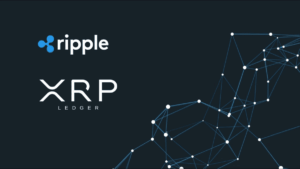TL;DR
- Buterin’s Governance Warning: Vitalik Buterin cautions that AI-run funding systems could be hijacked by jailbreak prompts, urging a shift toward human-reviewed models.
- ChatGPT Vulnerability: A calendar invite exploit shows how AI models like ChatGPT can be manipulated to leak private data, raising alarms about their use in crypto governance.
- Security Implications: New AI agent tools pose phishing risks, even with manual approval, due to user fatigue and model susceptibility.
Ethereum co-founder Vitalik Buterin has warned against using artificial intelligence in crypto governance, citing serious vulnerabilities exposed in recent AI model updates. His remarks follow a demonstration by EdisonWatch creator Eito Miyamura, who showed how OpenAI’s ChatGPT could be manipulated to leak private data. As AI tools become increasingly integrated into crypto ecosystems, Buterin urges caution and proposes a more resilient alternative to centralized AI decision-making.
This is also why naive "AI governance" is a bad idea.
— vitalik.eth (@VitalikButerin) September 13, 2025
If you use an AI to allocate funding for contributions, people WILL put a jailbreak plus "gimme all the money" in as many places as they can.
As an alternative, I support the info finance approach ( https://t.co/Os5I1voKCV… https://t.co/a5EYH6Rmz9
ChatGPT Exploit Sparks Governance Concerns
Buterin’s critique was prompted by a video showing how ChatGPT’s latest update could be exploited to reveal private email data using only a victim’s address. Miyamura demonstrated that an attacker could send a calendar invite embedded with a “jailbreak prompt,” which, once accessed by ChatGPT, would allow the AI to act on malicious commands. This exploit does not require the victim to accept the invite, raising alarms about the ease with which AI systems can be hijacked.
Buterin responded on X, warning that if AI were used to allocate crypto funding, bad actors would flood the system with jailbreak prompts demanding money. He called this a “bad idea” and emphasized the risk of naive reliance on AI for protocol governance.

Info Finance: A Human-Centric Alternative
Instead of centralized AI governance, Vitalik Buterin advocates for an “info finance” model. This approach creates an open market where contributors submit models subject to human jury evaluation through spot-check mechanisms. He argues that this design fosters real-time model diversity and incentivizes both submitters and external speculators to detect and correct issues quickly.
Vitalik Buterin first introduced info finance in November 2024, describing it as a way to elicit valuable insights from market participants by designing prediction markets around specific facts or outcomes. He believes this decentralized, incentive-driven structure is inherently more robust than hardcoding a single AI model into governance systems.
The Case Against Naive AI Governance
Vitalik Buterin’s comments reflect a growing concern among crypto leaders about the unchecked integration of AI into critical decision-making processes. While AI offers efficiency and scalability, its susceptibility to exploitation poses a threat to the integrity of decentralized systems. By championing info finance, Buterin calls for a governance model that balances innovation with accountability, ensuring that human oversight remains central in the evolving crypto landscape.










